Collaborative Adaptive Science & Management
Partners: UC Rangelands, USDA-ARS, Center for Environmental Policy and Behavior
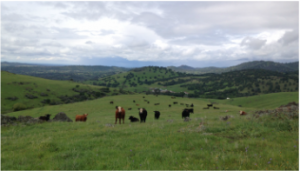
Cattle grazing annual grassland and oak woodland.
Rangelands cover approximately 60% of California, and include diverse and highly valued ecosystems across the state. These working landscapes have the potential to provide multiple goods and services, including food, forage, clean water, and biodiversity. Some of the state's richest and most highly valued rangeland systems are the expansive oak woodland-annual grasslands, which are largely privately owned.
The Collaborative Adaptive Management Project (CAMP) encompasses a long-term, large-scale experiment examining the responses of multiple ecosystem services to the adaptive implementation of prescribed grazing strategies developed in collaboration with diverse stakeholders.
We worked with ranchers, rangeland managers, and conservation professionals to identify agricultural and natural resource goals, potential challenges and opportunities, and adaptive grazing strategies to achieve stakeholder goals.
Two stakeholder workshops were held at SFREC in Spring 2012--hosting over 50 ranchers, rangeland managers, and conservation professionals.
In collaboration with stakeholders, we identified goals and adaptive grazing strategies for 6 oak woodland and annual grassland pastures. The grazing treatments: (T1) Season Long grazing ~ 6 months; (T2) Fall/Spring grazing ~3.5 months; (T3) Fall/Spring targeted grazing ~3.5 months.
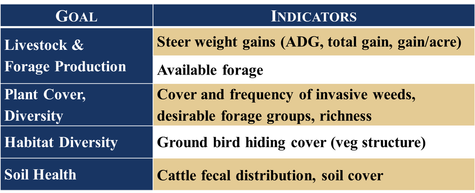
Metrics for monitoring ecosystem service responses to prescribed grazing treatments.
We have been collaborating with a stakeholder advisory group to actively implement, adapt, and monitor these prescribed grazing treatments, and have just completed our third treatment year.
CAMP is part of a multi-state, collaborative program to better integrate research and management expertise to enhance multiple ecosystem services. To learn about our sister project at the Central Plains Experimental Range in northeastern in Colorado, click here.
Research funded by USDA-NIFA, Rangeland Research Program and Rustici Rangeland and Cattle Research Endowment.
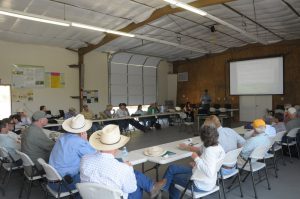
Group discussion. Stakeholder Workshop, May 2012.
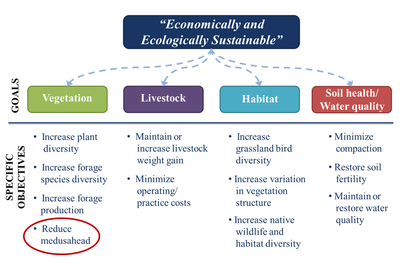
Stakeholder identified management goals and objectives.
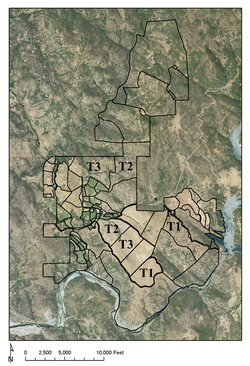
Map of pasture grazing treatments.
